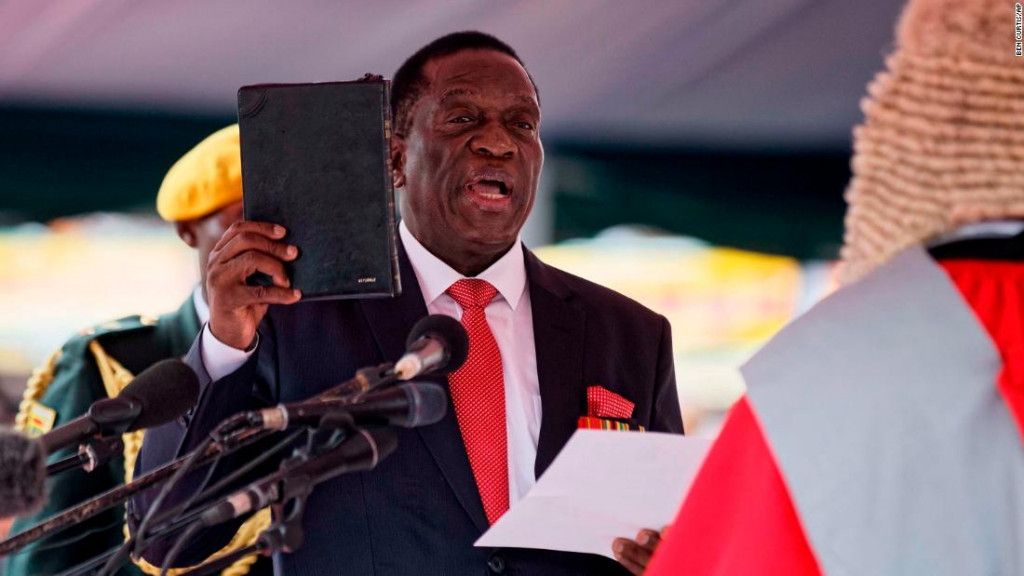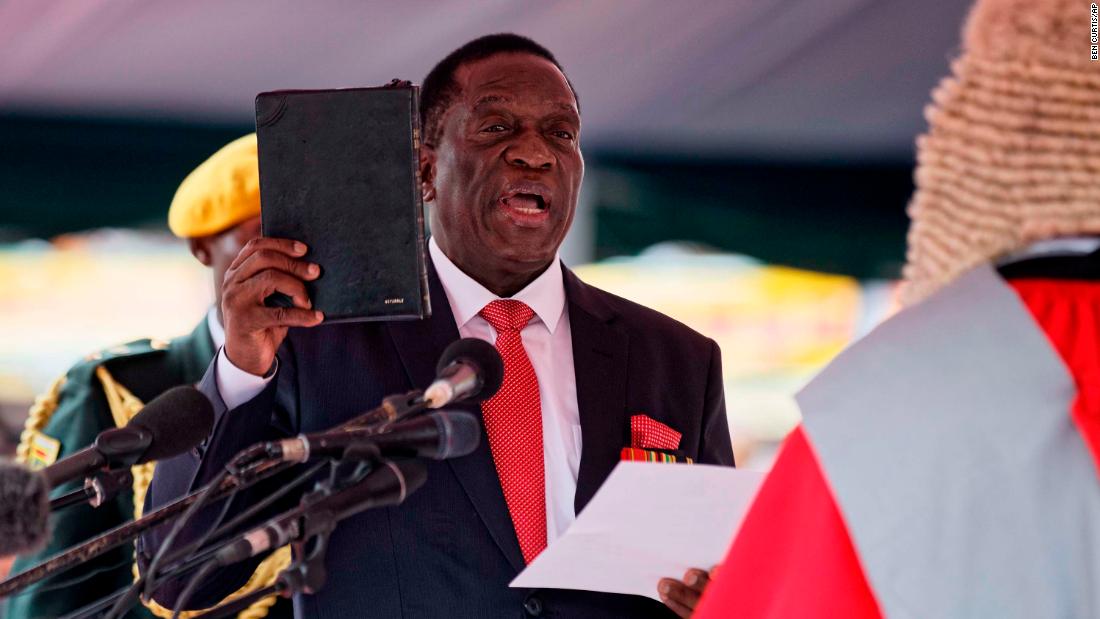The United States cautious about considering re-engagement with Zimbabwe

BY JIBRIL TURE
The dominant sentiment that came out of the meeting of the U.S. Senate Committee on Foreign Affairs’ sub-committee on Africa held on Tuesday under the title “The Future of Zimbabwe,” is the United States’ skepticism about how U.S. relations with Zimbabwe could improve even after the ouster of the southern African country’s leader of 35 years, Robert Mugabe, 93.
The caution is rooted in the fact that Zimbabwe’s new president, Emmerson Mnangagwa, was a close ally of Mugabe before being forced out by the now-former president just a few weeks ago. A member of the U.S. Senate Committee on Foreign Affairs’ sub-committee on Africa, Republican Senator Jeff Flake from Arizona, described Zimbabwe as a “nightmare.” Flake says he isn’t sure how much change could be expected under Mnangagwa.
In Zimbabwe itself, while many cheered Mugabe’s forced resignation, as many feared his constitutional successor will bring to the job a baggage of autocracy and corruption. Mnangagwa was, indeed, among Mugabe’s longest-serving allies. The skeptics point to the new president’s records as the one who, while a hard-liner cabinet minister in the ZANU-PF party, suppressed freedom and governed with an iron fist. Many still remember the “Gukurahundi” massacre of alleged dissidents in the Matabeleland and Midlands provinces directed in the mid- to late 1980s by Mnangagwa, then state security minister, that left an estimated 20,000 dead.
The mainstay of the sub-committee’s meeting was a presentation by U.S. Acting Deputy Assistant Secretary of State for African Affairs, Stephanie Sullivan. In a hard-hitting exposé, Sullivan remarked that the new administration in Harare has “a window of opportunity to demonstrate commitment to a democratic, just, healthy and prosperous Zimbabwe.” The U.S. official added:
“Our policy of re-engagement will focus on constitutional democracy, free and fair elections, respect of human rights and the rule of law, and an improved trade and investment climate, among other issues.”
Sullivan made it clear that the US engagement with Mnangagwa and his administration would be based on “demonstrated behaviour and not rhetorical intentions”.
She also warns stated that “perpetrators of abuses against civilians should be held accountable regardless of party affiliation.”
On the economic front, Sullivan remarked that
“the government must engage in hard economic reforms, including addressing budget deficits, reforming the Indigenization Act, and reducing corruption.”
She sounded a somewhat positive note by stating:
“We welcome President Mnangagwa’s statement of intent to carry out economic reforms during his economic speech, and we are assessing the budget that was released last week.”


